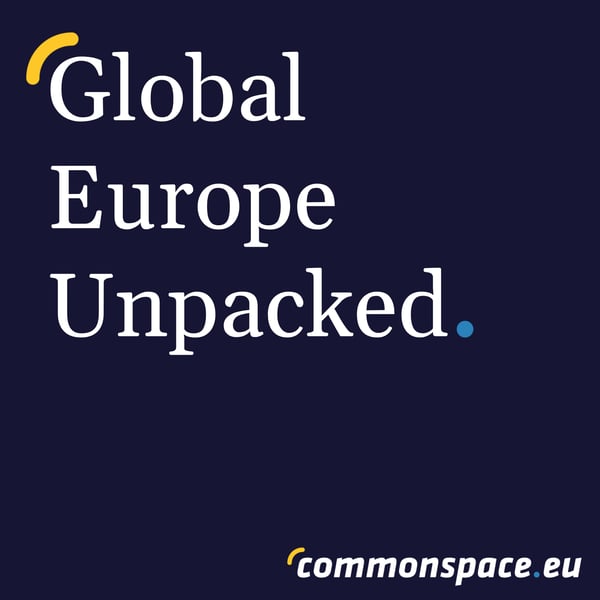Is EU ‘strategic autonomy’ compatible with NATO? – with Dr Jamie Shea
Global Europe Unpacked
LINKS Europe
5 • 10 Ratings
🗓️ 11 February 2021
⏱️ 30 minutes
🧾️ Download transcript
Summary
Transcript
Click on a timestamp to play from that location
| 0:00.0 | This is a common space. EU podcast. |
| 0:03.0 | From the city of the Hague, welcome to Global Europe Unpacked, a podcast about Europe's engagement with its neighborhood and a wider world. |
| 0:13.0 | Lots and lots of windy rhetoric about independence and no capabilities does not make European strategic autonomy look particularly serious. |
| 0:27.5 | Hello and welcome to Global Europe Unpacked, the podcast that looks at the emerging trends facing the European continent, |
| 0:31.7 | and the growing ambition for the EU to become a global or geopolitical power. |
| 0:37.4 | I am your host, Will Murray, and in today's episode we are going to be looking at the North Atlantic Treaty Organisation, |
| 0:43.0 | better known as NATO, whether it's still relevant, EU-NATO relations, and what the future holds for it. |
| 0:50.8 | Shortly, I'll be speaking to Professor Jamie Shea, who until 2018 was NATO's Deputy Secretary General for Emerging Security Challenges, |
| 0:58.0 | and is well known for being the organisation's spokesperson during the Kosovo War in the 90s. But first, here's my colleague Nina with some background. |
| 1:03.8 | For more than seven decades, the North Atlantic Treaty Organization has been the most potent security organization on the European continent, an embodiment of the transatlantic relationship, |
| 1:09.5 | and a bulwark against any threat to the states that form part of it. |
| 1:12.6 | NATO is based on the principle that an attack against one or several of its members is considered an attack against all. |
| 1:19.6 | This is the principle of collective defense, which is enshrined in Article 5 of the Washington Treaty signed in 1949. |
| 1:26.6 | Today, NATO has 30 member states, all on the European continent, except Canada and the United |
| 1:32.9 | States. |
| 1:34.0 | After the end of the Cold War in 1991, some doubted whether NATO was needed anymore. |
| 1:39.5 | Yet subsequent developments have shown that the organization's tasks, whilst evolving, remain absolutely pertinent to the present and future realities. |
| 1:48.0 | Most EU member states are also NATO members, but not all. |
| 1:52.0 | However, calls for closer EU-NATO relations have increased, with ideas on burden sharing where appropriate. |
| 1:58.0 | Defining an optimal way for EU-NATO cooperation to develop |
| 2:02.4 | is one of the many challenges facing the two institutions. Given the changing nature of conflict, |
| 2:08.1 | NATO has had to change too. For the future, hybrid warfare, cyber attacks and violent non-state |
... |
Please login to see the full transcript.
Disclaimer: The podcast and artwork embedded on this page are from LINKS Europe, and are the property of its owner and not affiliated with or endorsed by Tapesearch.
Generated transcripts are the property of LINKS Europe and are distributed freely under the Fair Use doctrine. Transcripts generated by Tapesearch are not guaranteed to be accurate.
Copyright © Tapesearch 2025.

